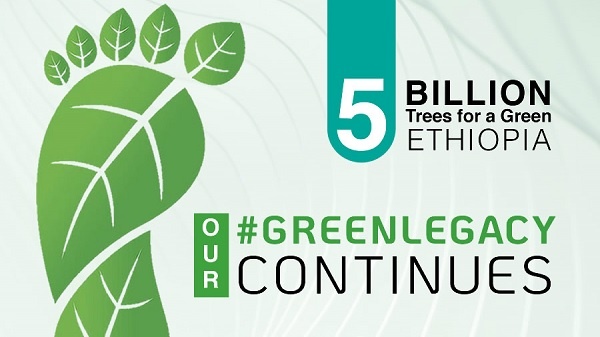
Ethiopia’s plan to plant 5 billion trees this year is part of the country’s Green Legacy Project, which aims to build a green and climate-resilient economy.
(World Economic Forum) – For World Environment Day on 5 June, the Ethiopian government has announced plans to plant 5 billion seedlings during this year’s rainy season.
“This is part of our larger goal of planting 20 billion trees during a four-year period,” explained Ethiopian Prime Minister Abiy Ahmed Ali.
He added that more than 4 billion seedlings were planted last year – including close to 350 million in one 12-hour period in July 2019.
The high survival rate of these seedlings is nature’s encouragement to “forge ahead”, he added.
Going green: Green Legacy Project
The planting is part of the country’s Green Legacy Project, which aims to build a green and climate-resilient economy.
“Our natural environment is an important determinant of human health, and a healthy ecosystem that supports biodiversity is critical.”
Abiy Ahmed Ali, Prime Minister of Ethiopia
At the same time, the COVID-19 coronavirus pandemic has reminded people of their own vulnerabilities, explained the Prime Minister: “Our natural environment is an important determinant of human health.”
The pandemic will test our resilience, but the planting will be done in a COVID-responsible way, he added.
Putting down roots
Tree-planting projects have been introduced around the world. Pakistan, for example, paid people who’d lost their jobs as a result of pandemic to plant trees.
And, at the World Economic Forum’s (WEF) Annual Meeting in Davos this year, WEF launched an initiative to grow, restore and conserve 1 trillion trees around the world.
“Nature-based solutions – locking-up carbon in the world’s forests, grasslands and wetlands – can provide up to one-third of the emissions reductions required by 2030 to meet the Paris Agreement targets,” the Forum said at the time.
Further emissions reductions will be necessary from the heavy industry, finance and energy sectors.
But scientists have cautioned that reforestation cannot be a substitute for lowering emissions:
“It’s definitely not a solution by itself to addressing current climate change,” NASA scientist Sassan Saatchi said last year. “To do that, we need to reduce human emissions of greenhouse gases. But it could still have some partial impact on our ability to reduce climate change,” she added.
Source: World Economic Forum
